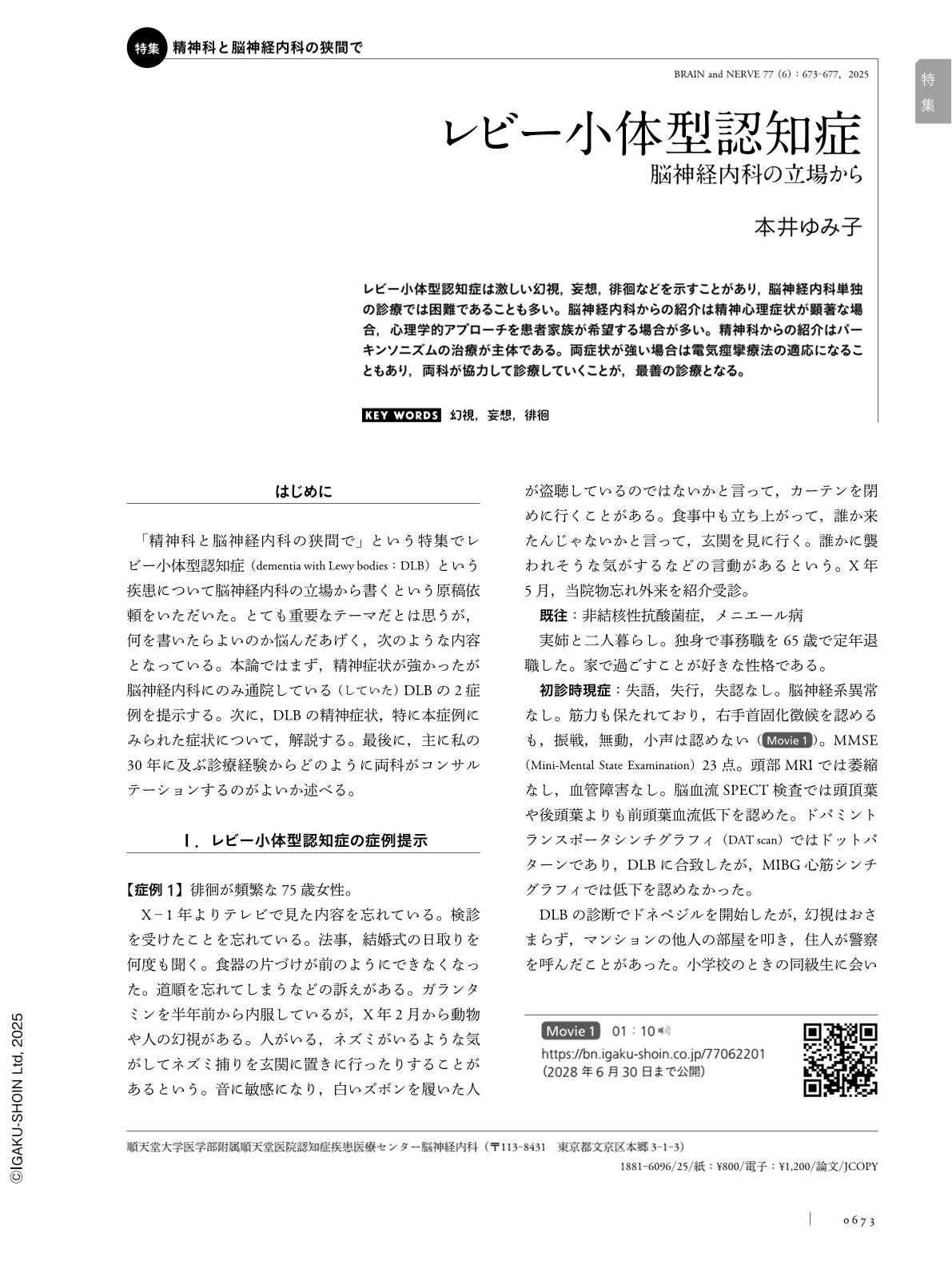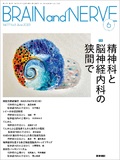Japanese
English
- 有料閲覧
- Abstract 文献概要
- 1ページ目 Look Inside
- 参考文献 Reference
レビー小体型認知症は激しい幻視,妄想,徘徊などを示すことがあり,脳神経内科単独の診療では困難であることも多い。脳神経内科からの紹介は精神心理症状が顕著な場合,心理学的アプローチを患者家族が希望する場合が多い。精神科からの紹介はパーキンソニズムの治療が主体である。両症状が強い場合は電気痙攣療法の適応になることもあり,両科が協力して診療していくことが,最善の診療となる。
Abstract
Dementia with Lewy bodies (DLB) can lead to pronounced behavioral and psychological symptoms. A 75-year-old woman presented with forgetfulness and visual hallucination, frequently reporting that a man in white clothing appeared and then departed. On one occasion, she knocked on a resident's door in an apartment building, prompting a police call from the occupant. Treatment with donepezil and memantine proved effective; however, the symptoms improved with the initiation of day care. An 80-year-old woman exhibited incoherent speech and developed optical illusions. She occasionally displayed violent behavior at night, asserting that an intruder was present in the home. Two years later, during a nighttime episode, she perceived her husband as a stranger and bit him. The husband contacted the police, resulting in her admission to a psychiatric hospital. Both patients received exclusive care from the neurology department. Referrals to neurologists typically occur when behavioral and psychological symptoms predominate or when families request psychological intervention. Referrals to psychiatry are primarily used to treat parkinsonism. Electroconvulsive therapy is indicated when both symptom types reach severe levels. Neurologists and psychiatrists provide the most effective treatment for Lewy body dementia.

Copyright © 2025, Igaku-Shoin Ltd. All rights reserved.


